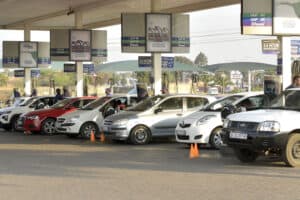In the event of an accident, insurers may insist on proof that the appliance and its installation complied with safety standards.

Homeowners with gas appliances stand the chance to have insurance claims denied if it is found that their appliances did not meet the safety requirements set by the South African Bureau of Standards (SABS) and the Liquefied Petroleum Gas Safety Association of South Africa (LPGSASA).
This is according to Marike van Niekerk, Legal and Compliance Manager at MUA Insurance Acceptances, who told Krugersdorp News that insurers expected their policyholders to prove that they have taken every reasonable measure to manage the risks associated with their insured assets.
READ MORE: SABS dysfunction puts all South Africans at risk – DA
“Gas is becoming more and more popular for household use, and a report by South Africa’s Competition Commission reveals that gas is used in one way or another, in at least 20 per cent of South African electrified households and about 13 per cent of households that are not connected to the electrical grid.”
She said in the event of an accident involving a gas appliance, insurers may insist on proof that the appliance and its installation complied with safety standards.
“For this, the policyholder needs a Certificate of Conformity, which confirms that the appliance was inspected by an authorised person who is registered with the LPGSASA. It is proof that the appliance is safe, leak free and installed in accordance with the SABS regulations.”
Marike added if homeowners cannot produce the required safety documentation, there was a good chance that their insurance claims could be denied.
She said the LPGSASA has a number of requirements that should be on every homeowner’s checklist when installing a gas appliance and provided the following tips:
· Only use a registered installer. Approved installers must be able to show you their LPGSASA registration certificates and have to be able to provide you with an installation certificate once the installation is completed.
· Only buy gas from a qualified gas dealer. Approved gas dealers are listed on the LPGSASA website, and will always secure new and refilled bottles with their distinctive gas bottle seals.
· Make sure that all of your gas products have been verified and tested by the correct regulatory bodies. This includes making sure that the appliance has SABS and LPGSASA certificates of approval. LPGSASA also maintains a database of approved appliances on its website, if you need to confirm that it is indeed certified.
· Regularly check whether the seal on a cylinder matches the brand of the cylinder.
· Regularly check gas appliances before use. No matter which appliance it is, always ensure that no pipes are damaged, no gas is leaking and that all valves open and close correctly.
Lastly, she explained that homeowners need to turn off gas appliances immediately if they suspect that the equipment may be leaking.
“All windows and doors should be opened and a registered gas engineer should be contacted to come and inspect the appliance.”
To further prevent any possible claims rejections, Marike advised homeowners to get registered installers to perform annual maintenance checks.
“There are major implications to using non-compliant gas appliances, and homeowners place themselves at peril – both financially and physically – if they do not manage their risks to the best of their ability,” she concluded.
For more news your way, follow The Citizen on Facebook and Twitter.






